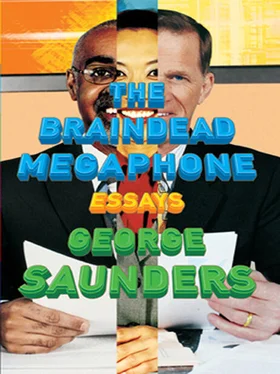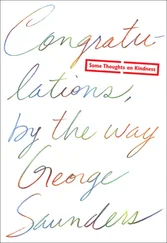I imagined the scene at the convent — everyone in nun gear, sitting around a TV that was somehow always tuned to The Flying Nun. And then Sister Lynette makes her announcement:
“I’m thinking of giving Saunders Johnny Tremain. ”
A tense silence.
“Isn’t that…,” asks Sister Humiline, the principal, “an award-winner?”
“It is,” says Sister Lynette. “But I think he’s ready.”
“Well, then…,” says Sister Humiline. Clearly this is important. Denied this, Sister Lynette might make her break for Kansas. “Let him give it a try, then. But, truly, I wonder if he’s got it in him. That book is hard, and he is only a third-grader.”
“Even I had trouble with it,” pipes up a junior nun.
“I think he can handle it,” says Sister Lynette.
And the wonderful thing was: I could. I loved the language, which was dense and seemed not to care that it sounded mathematically efficient (“On rocky islands gulls woke”). The sentences somehow had got more life in them than normal sentences had. They were not merely sentences but compressed moments that burst when you read them. I often left the book open on the kitchen table, so that my mother and her friends could see how at home I was with phrases like “too cripple-handed for chopping open sea chests” or “Isannah drank herself sick and silly on sillabubs.”
A sentence, Forbes seemed to believe, not only had to say something, it had to say it uniquely, with verve. A sentence was more than just a fact-conveyor; it also made a certain sound, and could have a thrilling quality of being over-full, saying more than its length should permit it to say. A sequence of such sentences exploding in the brain made the invented world almost unbearably real, each sentence serving as a kind of proof.
The tragic accident that happens early in the book ends Johnny’s silversmithing: his right thumb is melded to the palm of his hand by molten silver. During recess, I started holding my hand like his in the pocket of my coat, trying to get through the entire period without uncrippling myself. There was a sweetness in the bitterness I felt as I imagined that I was Johnny and the whole world had turned against me, even my fiancée, Cilla, and her real-life corollary, Susan Pusateri. Had Susan smiled? She would marry me in spite of my deformity. Was she talking energetically to Joey Cannarozzi? She preferred his fully opposable thumb, and I would therefore have to lay siege to the British armory.
After a while, because I liked the idea of being wounded, but didn’t much like the idea of actually having that pink flipperlike thing flapping around on my arm, a world-famous surgeon from France would arrive in the Boston in my head and fix my hand, and I would go back to class, face chapped from the wind, holding the book in my now-perfect hand, Newbery Medal facing outward.
“Good book?” Sister Lynette would say from her desk.
“Good book,” I would say.
Before Johnny Tremain , writers and writing gave me the creeps. In our English book, which had one of those 1970s titles that connoted nothing ( Issues and Perspectives , maybe, or Amalgam 109 ), the sentences (“Larry, aged ten, a tow-headed heavyset boy with a happy smile for all, meandered down to the ballfield, hoping against hope he would at last be invited to join some good-spirited game instigated by the other lads of summer”) repulsed me the way a certain kind of moccasin-style house slipper then in vogue among my father’s friends repulsed me. I would never, I swore, wear slippers like that. Only old people who had given up on life could wear slippers like that. Likewise the sentences in Amalgam 109 or Polyglot Viewpoints seemed to have given up on life, or to never have taken life sufficiently personally. They weren’t lies, exactly, but they weren’t true either. They lacked will. They seemed committee-written, seemed to emanate from no-person, to argue against the intimate actual feeling of minute-to-minute life.
Forbes suggested that the sentence was where the battle was fought. With enough attention, a sentence could peel away from its fellows and be, not only from you, but you. I later found the same quality in Hemingway, in Isaac Babel, Gertrude Stein, Henry Green: sentences that had been the subject of so much concentration, they had become things in the world instead of attempts to catalog it.
A person can write: “There were, out in the bay, a number of rocks, islands of a sort, and upon these miniature islands, there resided a number of gulls, which, as the sun began to rise, gradually came to life, ready to begin another day of searching for food.”
Or she can write: “On rocky islands gulls woke.”
The first sentence is perfectly correct. There is, strictly speaking, more information in it than in the second. But is the increased information justified by the greater number of words? The second sentence credits our intelligence. Where else would the islands be, but in a bay? The plural “islands” implies that there are “a number” of them. If the rocks are “islands of a sort,” let’s call them “islands.” Gulls search for food every day, no need to point it out.
The second sentence has been loved by its creator. She has given it her full attention. That missing comma? She meant it. There was, to Forbes, I expect, a world of difference between, “On rocky islands, gulls woke,” and “On rocky islands gulls woke.”
Standing around the school yard, I tried out sentences meant to describe, with Forbes-like precision, whatever I happened to be seeing: “Sister Lynette was eating lunch in the doorway while watching the third-and fourth-grade kids running around in the parking lot at recess and as she watched them, she thought of her home in Kansas.” That wasn’t very Forbes-ish. Sister Lynette wasn’t actually standing in the doorway at all. She was…she was “standing on the sidewalk that ran between the school building itself and the parking lot on which the children played.” Or actually, she was “standing with one foot on that sidewalk and one foot in the parking lot.” Did we need all that? Was her exact position worth the resulting sentence-bulk? Why did we care where she was standing anyway? Did it affect what came next? Also, she wasn’t watching “the third-and fourth-grade kids.” She was watching some of them. Actually, on closer inspection, she wasn’t. She was looking across the street, at a run-down house. What did I mean by “run-down”? What were the specific characteristics of the house that might cause me to think of it as “run-down”?
I remember those times with great affection: the bitter Chicago cold, the vast parking lot, the world, suddenly and for the first time, transformed into something describable, with me, the Potential Describer, at its center.
The world, I started to see, was a different world, depending on what you said about it, and how you said it. By honing the sentences you used to describe the world, you changed the inflection of your mind, which changed your perceptions.
The difference between Esther Forbes and the authors of Polyglot 141 was that Forbes had fully invested herself in her sentences. She had made them her own, agreed to live or die by them, taken total responsibility for them. How had she done this? I didn’t know. But I do now: she’d revised them. She had abided long enough with each of them to push past the normal into what we might call the excessive-meaningful ; had held the prose up to sufficient scrutiny to turn it into something iconic, something that sounded like her and only like her.
What happens when this attention is not paid?
Well, Polyglot 141 happens.
But worse things can happen than Polyglot 141.
Читать дальше












